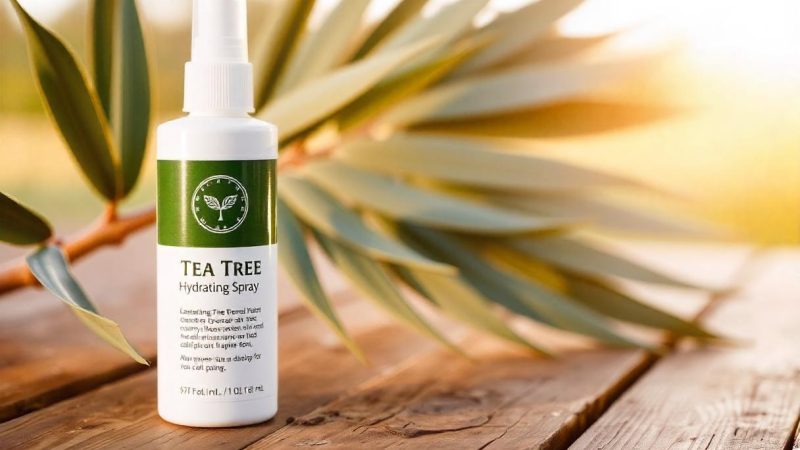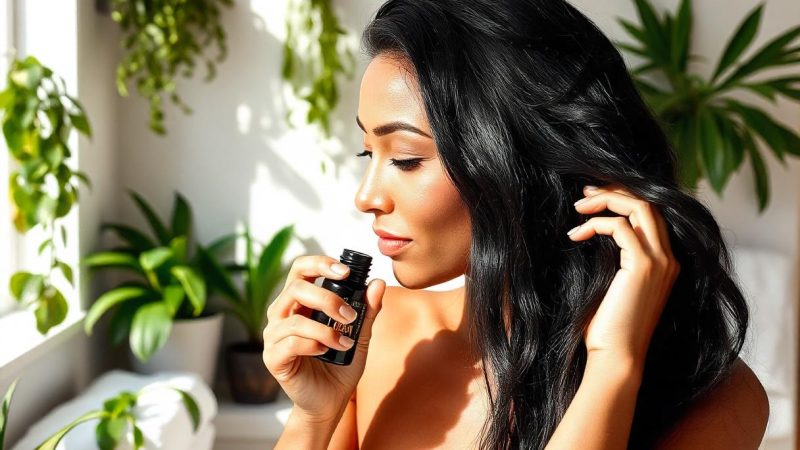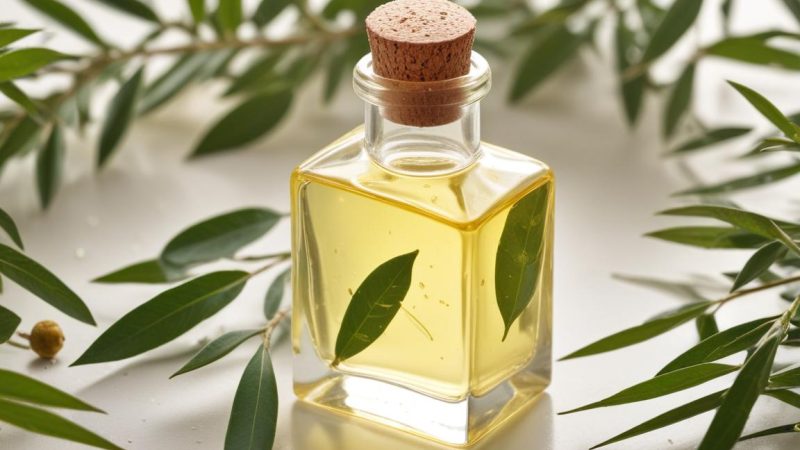Tea Tree Oil for Hair: Benefits, Uses, and How to Apply It

Tea tree oil, derived from the leaves of the Melaleuca alternifolia tree, has been widely used in natural remedies for centuries. With its potent antimicrobial, anti-inflammatory, and healing properties, it is especially beneficial for maintaining healthy hair and scalp. Let’s explore some of the key benefits and uses of tea tree oil for hair and how you can incorporate it into your hair care routine for optimal results.
Benefits of Tea Tree Oil for Hair
- Gets Rid of Dry Scalp
Tea tree oil is known for its moisturizing and soothing effects on the scalp. It helps reduce dryness by unclogging hair follicles and allowing the scalp’s natural oils to flow freely. Its anti-inflammatory properties calm irritation, preventing further scalp issues such as flakiness and itchiness. This makes it an excellent natural remedy for those struggling with a dry scalp. - Does Away with Dandruff
One of the most common hair concerns is dandruff, often caused by a fungus called Malassezia. Tea tree oil’s antifungal properties are particularly effective in controlling the growth of this fungus, thereby reducing dandruff. Regular use of tea tree oil in shampoos or scalp treatments can help reduce dandruff over time, leaving your scalp cleaner and healthier . - Reverses Hair Fall
Hair fall can be triggered by clogged follicles, a dry scalp, or inflammation, all of which can be addressed by tea tree oil. It helps unclog the hair follicles, promotes blood circulation to the scalp, and provides nutrients that support hair growth. Tea tree oil may also reduce breakage by strengthening the hair, encouraging longer, healthier strands . - Kills Hair Lice
Tea tree oil has insecticidal properties that make it effective in killing lice and preventing re-infestation. Its active compound, terpinen-4-ol, has been shown to weaken and suffocate lice. Regular application of diluted tea tree oil can help control lice infestations, and it’s a natural alternative to chemical-based treatments .
How to Use Tea Tree Oil for Hair
- For the Dryness Drama
To combat dryness, add a few drops of tea tree oil to your favorite carrier oil (such as coconut or jojoba oil) and massage it into your scalp. Let the oil sit for 15-20 minutes before rinsing thoroughly. This will not only hydrate your scalp but also lock in moisture, leaving your hair soft and manageable. - For the Dandruff Issue
Incorporate tea tree oil into your shampoo routine to address dandruff. Mix about 5-10 drops of tea tree oil with your regular shampoo, lather, and massage it into your scalp for a few minutes before rinsing. The antifungal action of tea tree oil will target the dandruff-causing fungus, while its soothing properties help with any irritation. - For Hair Growth
If you’re looking to boost hair growth, a tea tree oil scalp massage could work wonders. Mix tea tree oil with a carrier oil and gently massage it into your scalp. Doing this regularly will help stimulate blood circulation, ensuring your hair follicles receive the nutrients they need for healthy hair growth. You can leave the oil mixture on overnight for deeper conditioning, then wash it out in the morning. - For Getting Rid of Lice
For treating lice, mix about 10-15 drops of tea tree oil with a carrier oil or a natural conditioner. Apply it to your scalp and hair, ensuring that all strands are coated. Let it sit for 30-40 minutes before rinsing. Comb through your hair with a fine-tooth lice comb to remove any dead lice. Repeat the process every few days until the infestation is under control. - For Daily Conditioning
You can use tea tree oil as part of your daily conditioning routine to maintain healthy hair. Add a few drops to your conditioner or hair mask, and apply it to the ends of your hair to prevent dryness and split ends. This helps keep your hair nourished and strengthens it over time.
Final Thoughts
Tea tree oil is a versatile and powerful natural remedy for various hair and scalp issues. Whether you’re dealing with dandruff, dry scalp, lice, or hair loss, incorporating tea tree oil into your hair care routine can help you achieve healthier, shinier, and stronger hair. However, it’s important to always dilute tea tree oil with a carrier oil before applying it to your scalp, as it can be potent and may cause irritation in its pure form. Consult with a dermatologist before use if you have sensitive skin or are prone to allergic reactions.
By harnessing the power of tea tree oil, you can enjoy its numerous benefits and maintain optimal scalp and hair health.
Sources:
- Gupta, A. K., & Nicol, K. (2004). The Use of Tea Tree Oil in Dermatology. Journal of the American Academy of Dermatology.
- Hammer, K. A., Carson, C. F., & Riley, T. V. (2006). Antimicrobial Activity of Tea Tree Oil. Clinical Microbiology Reviews.
- Satchell, A. C., Saurajen, A., Bell, C., & Barnetson, R. S. C. (2002). Treatment of dandruff with 5% tea tree oil shampoo. Journal of the American Academy of Dermatology.
- Jandourek, A., Vaishampayan, J. K., & Vazquez, J. A. (1998). Efficacy of Melaleuca Alternifolia (Tea Tree) Oil in the Treatment of Tinea Pedis. Journal of the American Academy of Dermatology.
- Mayo Clinic. (2022). Tea Tree Oil: Overview and Benefits.





